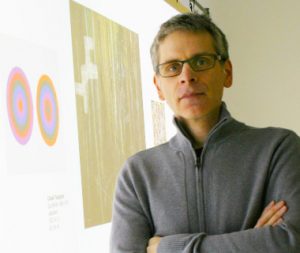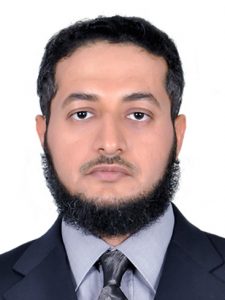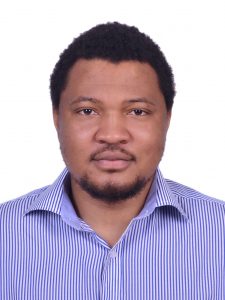We have a SACHI seminar on Monday 12th June 2017 which will be given by two speakers, presenting two connected talks within the normal hour slot.
The speakers are Dr Oliver Schneider from the Hasso Plattner Institute in Potsdam, Germany and Professor Karon MacLean who is Professor of Computer Science at the University of British Columbia, Canada.
Details for the two talks are as follows.
Title: Haptic Experience Design: How to Create for Touch
Abstract: Touch is everywhere in our daily lives, but interactive technology has traditionally prioritized visual and audio feedback. Recently, a variety of haptic feedback methods promise the benefits of touch for application areas like eyes-free feedback, emotional robots, and physically embodied education. However, haptic experiences are challenging to create – designers must draw from expertise in psychology, mechanical engineering, software engineering, and design theory, and work simultaneously with touch, vision, and audio.
To understand and support haptic experience design, we interviewed professional hapticians (makers of haptics) to provide a first definition and description of their process and its constituent challenges. We developed a series of design tools to support rapid, iterative creation of experiences for the most common haptic interface: expressive vibrotactile feedback. By characterizing haptic experience design and informing supportive tools, we make a first step towards establishing haptic design as its own field, akin to graphic and sound design.
Bio: Oliver Schneider is a Postdoctoral Scholar with the Hasso Plattner Institute in Potsdam, Germany. His Ph.D. topic at the University of British Columbia (UBC) was Haptic Experience Design: describing the process designers follow when creating haptic experiences and developing software tools to support them. Oliver received his M.Sc. in Computer Science from UBC and a B.Sc. Honours from the University of Saskatchewan, and has worked with Disney Research on novel haptic interactions. Through his research, Oliver seeks to empower people to work creatively with novel haptic, multimodal, and multisensory interactive technology.
Title: Making and Experimenting with Furry Robots with Feelings
Abstract: Touch has a major role to play in human-robot interaction. Here, advances in tactile sensing, wearable and context-aware computing as well as robotics more broadly are spurring new ideas about how to configure the human-robot relationship in terms of roles and utility, which in turn expose new technical and social design questions.
This talk will focus on my group’s recent work on haptic or physical human-robot interaction, where we aim to bring effective haptic interaction into people’s lives by examining how touch (in either direction) can help address human needs with the benefit of both low- and high-tech innovation. I will give a sense of these efforts from three perspectives, each involving significant technical and evaluative design challenges: sensing emotive touch, designing expressive robot bodies and behaviours, and creating evaluative scenarios where participants experience genuine – and changing – emotions as they interact with our robots.
Bio: Karon MacLean is Professor of Computer Science at the University of British Columbia, Canada, with a B.Sc. in Biology and Mech. Eng. (Stanford) and a M.Sc. and Ph.D. (Mech. Eng., MIT) and time spent as professional robotics engineer (Center for Engineering Design, University of Utah) and interaction researcher (Interval Research, Palo Alto). At UBC since 2000, her research specializes in haptic interaction: cognitive, sensory and affective design for people interacting with the computation we touch, emote and move with, whether robots, touchscreens or mobile activity sensors. Special Advisor on Knowledge Mobilization to UBC Faculty of Science; Charles A. McDowell Award, 2008; Assoc Editor of IEEE Transactions on Haptics; co-chair of the 2010 and 2012 IEEE Haptics Symposium; Director of UBC’s pan-university Designing for People Research Cluster.











